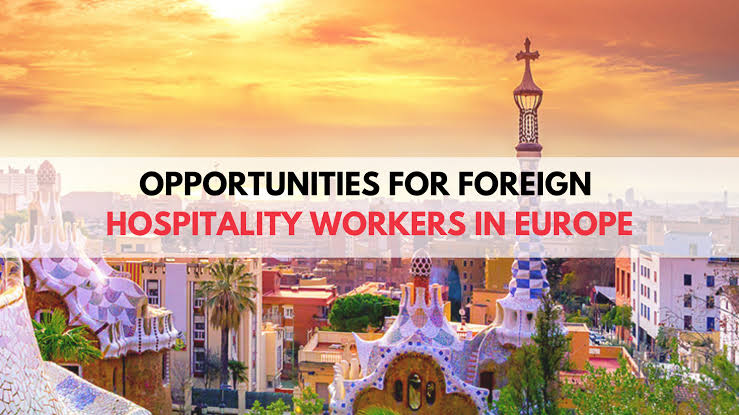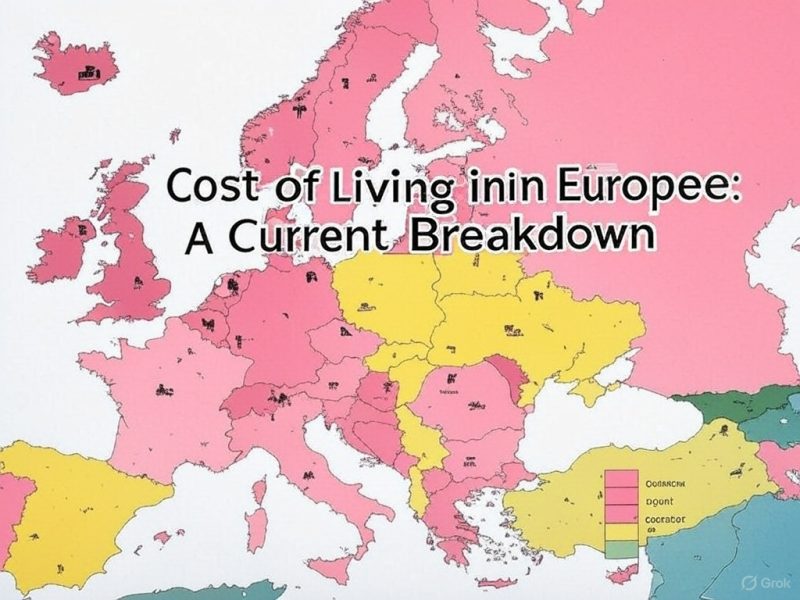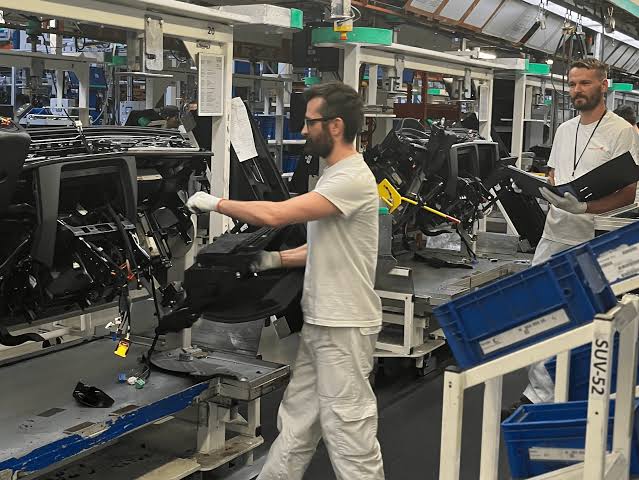Have you ever imagined kicking off your workday with a strong rakia shot, then diving into a project overlooking the Vitosha Mountains, all while your bank account thanks you in euros? If Bulgaria’s got you curious—think affordable seaside escapes in Varna, Sofia’s buzzing startup energy, and that unbeatable Balkan hospitality—then buckle up. I’ve been guiding expats through Eastern Europe’s career twists for over a decade, and Bulgaria? It’s the sleeper hit that’s waking up fast. Low costs, EU perks, and a tech surge make it a smart play for foreigners eyeing solid paydays in 2026.
That doesn’t mean it’s a cakewalk to land one of those high-paying jobs in Bulgaria for foreigners. You’ll need to decode the EU Blue Card, pick up some Bulgarian basics (or stick to English in IT hubs), and show how your skills amp up their growth story. In this roundup, I’m breaking down the top 10 high-paying jobs in Bulgaria for expats in 2026, from salary ranges to why they’re welcoming to outsiders, plus hacks to get your foot in the door. Coders, healers, deal-makers—there’s a lane for you. Grab a banitsa, and let’s explore what makes this corner of the Balkans so ripe for the picking.
Why Bulgaria’s Becoming a Go-To for Foreign Pros in 2026
Let’s paint the picture quick. Bulgaria’s economy is gunning for 3-4% growth, riding waves from EU funds, IT outsourcing, and tourism rebounds. Sofia’s the epicenter, but Plovdiv and Varna are rising stars with their creative vibes and ports. As an EU member, it’s got that seamless access without the Western price tags—rent in Sofia runs a third of Berlin’s, leaving more for those weekend Black Sea dips.
For expats, the draw’s huge: English flies in tech and business, the Blue Card visa targets skilled earners over €40,000, and family reunions are straightforward. Salaries? They’re climbing fast, often 20-30% above local averages for internationals, with 13th-month bonuses as norm. Remote-friendly too, so you could freelance from a Rila Monastery hideaway. Pro move: Join expat chats on Internations or Reddit’s r/bulgaria—they’re packed with unfiltered gems. Now, onto the meaty list that’s got folks packing their bags.
1. Software Developer
Picture debugging lines in a Sofia co-working spot like Puzl, building fintech tools for ScaleFocus or Chaos Group. Software developer jobs in Bulgaria are exploding with the offshoring boom, and by 2026, mids can snag €35,000–€55,000 yearly, while seniors at Telerik hit €70,000+ with remote perks.
Why expat-friendly? Bulgaria’s IT scene is 40% foreign-born, loving diverse coders for global clients. CS degree, skills in .NET or Angular, and a clean GitHub are your entry pass. A Ukrainian dev I know jumped to Endava via a Sofia Tech Meetup—visa sponsorship zipped through in a month. Tip: Target blockchain; Bulgaria’s crypto scene is wild. Con: Time zone juggling for US gigs, but that’s jet-set fuel. Pro: Hackathons with free shopska salad? Count me in.
2. IT Project Manager
Steering teams through app launches for DXC or Hewlett Packard Enterprise in Sofia’s tech parks. In 2026, IT project management roles in Bulgaria for foreigners pay €40,000–€65,000, leads cresting €80,000 amid digital transformations.
Foreigners thrive: Multinationals run English-only ops, craving structured minds from abroad. PMP cert, Agile mastery, and 5+ years experience required. I swapped stories with a Romanian PM who landed at EPAM via LinkedIn—networking at Dev.bg events sealed it. Plovdiv’s quieter scene suits families. Stand out by blending Scrum with cultural savvy; Bulgarian teams value directness. Challenge: Deadline dashes, but 40-hour weeks keep burnout low. Bonus: Leading virtual crews across continents feels like captaining your own ship.
3. Financial Analyst
Crunching forecasts for UniCredit or Allianz in Sofia’s finance district, spotting trends in emerging markets. Salaries? €38,000–€60,000 in 2026, seniors at €75,000 with bonuses for sharp calls.
Expat appeal: The sector’s international, post-EU integration pulling in Euro-savvy analysts. Finance degree, Excel wizardry, and CFA basics help. My Polish contact pivoted to Sopharma Trading via a Warsaw recruiter—English reports dominate. Tip: Focus on ESG investing; Bulgaria’s green funds are heating up. Con: Volatile lev-euro plays, but that’s thrill for number nerds. Perk: Those understated power coffees at Sense Hotel, overlooking the city lights.
4. Medical Specialist (e.g., Radiologist)
Reading scans at Tokuda Hospital or Acibadem in Sofia, aiding Bulgaria’s healthcare upgrade. Specialists earn €45,000–€85,000 by 2026, driven by EU health investments and expat patient flows.
For foreigners, it’s doable: EU quals recognize easily; non-EU need nostrification but clinics sponsor. Med degree, specialty cert, and B1 Bulgarian for chats. An Indian radiologist I met cleared it at Military Medical Academy—English in private wings eases the shift. High pay from doc shortages. Tip: Tele-radiology’s booming; remote reads pay premiums. Downside: Paperwork pile-up, but worth the white-coat prestige. Reward: Modern gear and Black Sea wellness breaks.
5. Cybersecurity Consultant
Hardening networks for A1 Bulgaria or b2bnet in Varna’s cyber hubs. Consultants pull €42,000–€68,000, experts €85,000+ in 2026’s threat landscape.
Why internationals? Bulgaria’s NATO ties draw global defenders for Eastern flank ops. Cyber degree, CEH certs, and penetration testing chops. A Turkish specialist buddy joined SecureNet via a Black Sea Cyber Conf—sponsorship was swift. Pro: English briefings for EU clients. Con: On-call jitters, but flex schedules balance it. Highlight ransomware defense; Bulgaria’s seen spikes. It’s like being a digital knight in a land of ancient fortresses.
6. Tourism Development Manager
Crafting eco-tours for Balkan Holidays or Club Med in Sunny Beach, boosting post-pandemic recovery. Expect €35,000–€55,000 in 2026, directors at €70,000 with seasonal spikes.
Expat edge: The industry’s worldly, needing multilingual marketers for global crowds. Hospitality degree, CRM tools, and event planning experience. I chatted with a Greek manager who scored at Orbis via a ITB Berlin fair—English pitches win. Varna’s coast is prime. Tip: Push sustainable stays; EU eco-labels fund it. Challenge: Peak-season chaos, but off-months mean travel comps. Glam: Sampling wines on the job? Pure joy.
7. Renewable Energy Engineer
Designing solar arrays for Solarpro or wind setups in Dobrudzha plains. Engineers fetch €40,000–€62,000, project heads €80,000 by 2026’s green energy push.
Foreigner-friendly: EU Just Transition funds crave international expertise. Eng degree, PV system design, and AutoCAD skills. A German engineer I know relocated to AES via a Intersolar booth—Blue Card greased the wheels. Tip: Emphasize offshore wind; Black Sea potential’s untapped. Con: Dusty site surveys, but scenic drives compensate. Pro: Aligning with Bulgaria’s 30% renewable goal feels impactful.
8. E-commerce Specialist
Optimizing platforms for eMag or OLX Bulgaria in Sofia’s digital commerce wave. Specialists earn €38,000–€58,000, growth hackers €75,000 in 2026’s online retail surge.
Why expats? The market’s cross-border, loving SEO pros from abroad. Marketing degree, Shopify mastery, and analytics like Google Analytics. My Serbian contact landed at Payhawk via a E-commerce Expo—English strategies rule. Pro: Remote-heavy, laptop from a Plovdiv café. Con: Algorithm tweaks keep you sharp. Focus on mobile-first; Bulgaria’s smartphone penetration is sky-high.
9. Biotech Research Associate
Labbing up innovations at LB Bulgaricum or iQOS in Plovdiv’s bio cluster. Associates pull €35,000–€55,000, leads €70,000+ amid 2026’s health R&D boom.
International vibe: EU Horizon collabs welcome diverse PhDs in microbio or genetics. Science degree, lab protocols, publications. An Italian researcher pal joined Artin via a BioEurope event—English labs abound. Tip: Yogurt-derived probiotics; it’s Bulgaria’s niche superpower. Challenge: Grant hunts, but funding’s flowing. Reward: Pioneering gut health from the home of the original superfood.
10. International Trade Specialist
Navigating exports for Kaolin or tobacco firms in Varna’s port scene. Specialists command €40,000–€65,000, managers €85,000 in 2026’s trade revival.
Expats fit right in: The Black Sea gateway needs global negotiators. Econ degree, trade law knowledge, and CRM tools. A Ukrainian trader I met switched to Navibulgar via an Odessa link—English contracts prevail. Tip: Master CEPA deals with Turkey; it’s volume gold. Con: Tariff tango, but advisory roles chill it. Perk: Schmoozing over seaside lunches that seal multimillion deals.
Handy Hacks for Scoring High-Paying Jobs in Bulgaria as a Foreigner
Got a frontrunner? Here’s your game plan. Visa basics: EU Blue Card for €40k+ earners—employers file, approval in 2-3 months. CV style: Concise, skills-forward, with a photo (it’s the norm). Scout on Jobs.bg, Karieri.net, or LinkedIn “expat jobs Bulgaria 2026” searches.
Language tip: English covers 70% of high-end roles, but A1 Bulgarian charms locals—try Memrise for fun drills. Relo realities: €800–€1,500 startup; Imoti.net for pads (Sofia’s central, Burgas for beach life). Taxes? 10% flat rate—dreamy for high earners, plus social perks. Diversity nod: Bulgaria’s startup grants favor women-led ventures. Network at Sofia Tech Park mixers or expat barbecues. I once tuned a client’s pitch—bagged €5k extra. Timeline: 1-3 months from app to arrival; start with a scouting trip if you can.
Conclusion
And that’s the scoop—the top 10 high-paying jobs in Bulgaria for foreigners in 2026, from code caverns to coastal trades. Bulgaria’s no glossy Western hub, but it’s a vibrant vault of value, where careers stretch your leva further amid rose valleys and ancient Thracian tales. Sync your strengths with their tech tide or green goals, and you’ll be toasting with friends at a mehana before long.
Which one’s lighting your fire? A Varna cyber fortress or Sofia software sprint? Vent in the comments—your wins, worries, or wild ideas. Nazdrave to your Bulgarian breakthrough; may it be as bold as a lev and twice as rewarding. Do zobraneto!






